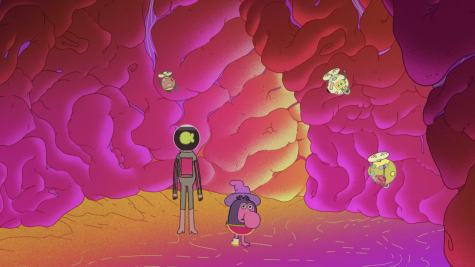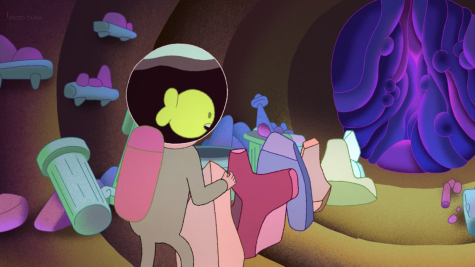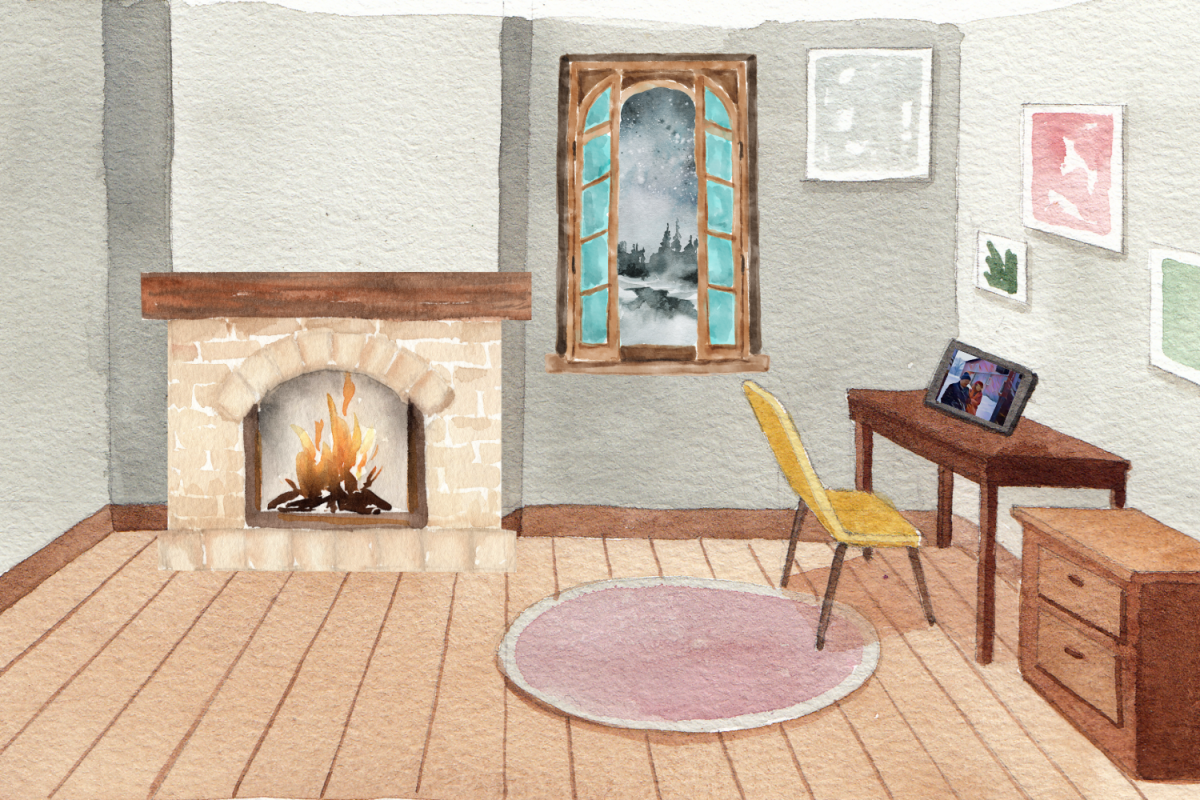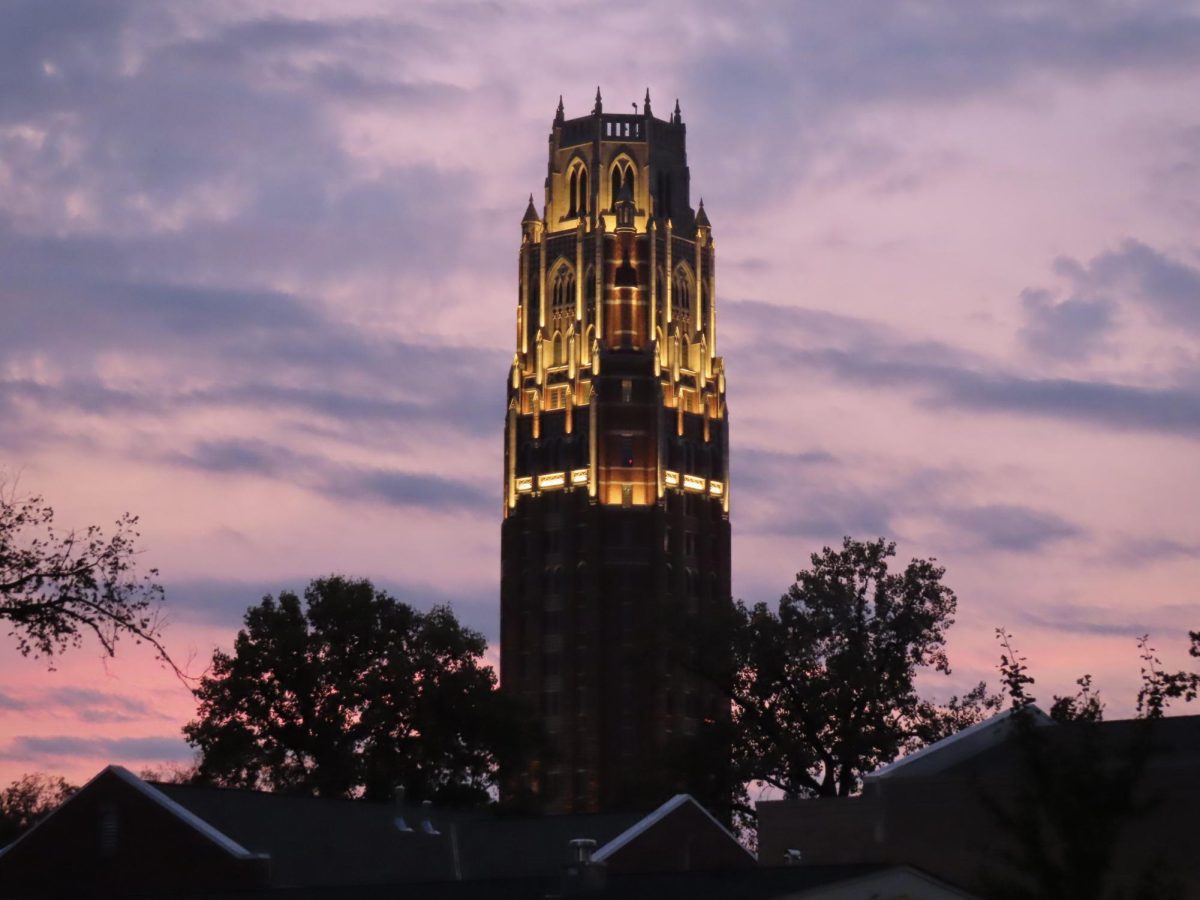I had high hopes for “The Midnight Gospel.” Three episodes in, I was phenomenally disappointed. But now, with the rest of the first season behind me, I’m blown away, and I don’t know how to reconcile those opposite reactions.
When I first heard Netflix had this show in production, set to be released April 20, the concept had me hooked. A “simulation farmer” named Clancy purchases a pre-owned universe simulator, with the intention of traveling to the abandoned and dying worlds within, finding “intelligent beings with stories to tell” and interviewing them for a podcast. It seemed like a unique and refreshing take on the simulation trope in modern science fiction (one that’s definitely been overused in recent years).
Creator Pendleton Ward sets this program up for greatness with his creative genius, which we’ve already seen a glimpse of through his work in Cartoon Network’s renowned “Adventure Time.” But, as a Cartoon Network show marketed mostly towards younger audiences, “Adventure Time” faced certain limitations in the kinds of content it could address. This led fans of animation everywhere to the logical conclusion that “The Midnight Gospel” would simply be “Adventure Time” for adults.
It is, and it isn’t.

It is, in that it breaks free of the children’s programming shackles that limited Ward to magical candy people and friendly talking elephants. In “Gospel,” Clancy’s interviews are actually lifted from comedian and podcaster Duncan Trussell’s show “The Duncan Trussell Family Hour,” a podcast where Trussell and guests explore questions of mindfulness, spirituality and self-actualization in the modern world. Clips pulled from the series are then animated into loosely fitting adventure narratives, and thus, “Gospel” was born.
As such, the show significantly ups the ante from Ward’s previous animation endeavor, covering modern adult issues for the modern adult world. In just the first two episodes, Clancy and his interview subjects develop a nihilistic yet powerful take on the inevitability of death and discuss the illusion of the self, two incredibly ambitious concepts that are hard to talk about in any context at all, much less in a lighthearted comedy.
Additionally, “Gospel” achieves a similar level of absurdism as the world-building in Finn and Jake’s “Land of Ooo.” In one episode, Clancy meets a man with a fishbowl for a head who serves as captain of a ship manned entirely by cats. The strange duo compare the processes of achieving higher consciousness in Eastern and Western religious canons, all while battling giants, building wacky inventions and exploring the vast ocean. While the subject matter is lofty, these characters and scenarios practically scream “Adventure Time.”
“Gospel” even manages to capture some of the meaningful undertones that lie beneath its fantastical and sometimes terrifying worlds, an achievement for which “Adventure Time” set a high standard. After each simulated adventure, Clancy returns from the world he’s just visited with a new pair of shoes to add to his collection. Seemingly a small detail, these shoes symbolized to me that Clancy was gaining new footholds in his own life as he learned how to make more sense of his own existence with each new interview. As the audience, we gain those new perspectives along with him, so their physical manifestation through footwear is a cute detail.
But for all those impressive victories, “Gospel” has plenty of failures.

As a witty podcast about questions of existentialism, it succeeds. As a wacky animated show about space travel and simulation of other worlds, it succeeds. As both of those things together — a wacky animated show about a witty podcaster who interviews beings from across the multiverse to find out their takes on life’s most existential questions — it starts to become too meta and too smart for its own good.
Once I fell through the show’s pretty surface layer, it felt like I was being force-fed the new worldviews Clancy learns from his interviews. Yes, I definitely learned a lot about metaphysical tradition from cultures around the world, but, while the show’s creators intended to use the whimsical animation to make this knowledge acquisition process more fun, it was nothing short of painful. I walked away from each episode with a new outlook on life — and a headache.
If you approach “Gospel” aiming to learn something new about yourself, you’ll have to suffer through jerky animation, head-spinning colors and a plot that heavily distracts from the all-too-real content of the podcast. If you’re in it to watch a gorgeously animated show with painted landscapes and artfully vast worlds, you’ll feel buried beneath the show’s misplaced confidence in itself and lose the drive to keep watching.
But at the end of the day, slogging through a whole lot of nonsense was worth it to eventually reach those profound “eureka” moments. At certain points, I hesitated to open my heart, or even my eyes, to the message of “The Midnight Gospel.” What I’ve realized is that it’s ultimately an acquired taste. It’s a show that both does and does not work as each of its component parts, and both does and does not work as the composite product that is Clancy’s space podcast. But I don’t regret tuning in to his frequency.
And I’d recommend that you, too, tune in sometime.






















